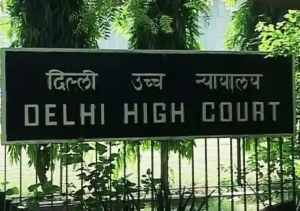 The Hon’ble High Court of Delhi vide its order dated 21.07.2022 in the matter of Railsys Engineers Private Limited Vs. The Additional Commissioner of Central Goods and Service Tax (Appeals – II) & Anr. in W.P. (C) 4712/2022, held that the Hon’ble Supreme Court’s order of suo moto extension of limitation would also be applicable to the condonable period, in which the appeal can be file and admitted on sufficient cause being shown.
The Hon’ble High Court of Delhi vide its order dated 21.07.2022 in the matter of Railsys Engineers Private Limited Vs. The Additional Commissioner of Central Goods and Service Tax (Appeals – II) & Anr. in W.P. (C) 4712/2022, held that the Hon’ble Supreme Court’s order of suo moto extension of limitation would also be applicable to the condonable period, in which the appeal can be file and admitted on sufficient cause being shown.
The Petitioner filed the writ petition before the Hon’ble High Court challenging the Order-in-Appeal dated 28.06.2021 rejecting the appeal of the petitioner on the ground that the appeal has been preferred beyond the prescribed period of limitation, along with Show cause notice dated 29.20.2019 and order dated 25.11.2019 passed by the concerned authority.
Petitioner’s Submissions: –
- It was submitted on the behalf of the petitioner that the limitation period was extended by order passed by the Hon’ble Supreme Court in suo moto W.P.(C) No. 3/2020.
- That SCN dated 29.10.2019, on which the order cancelling the registration is premised, is unsigned, directing the appearance of the petitioner’s authorized representative on 04.11.2019 and that too without indicating the venue where the proceedings would be conducted.
- Similarly, the order dated 25.11.2019, cancelling the registration is also unsigned and suffers from the same defect.
- That as per Rule 68 the respondent/revenue is required to send a notice for non-filing of returns for the period in issue. Further, the petitioner is regularly filing the returns up till February 2019.
- The petitioner did not file the returns from February 2019 till November 2019, therefore, before taking a draconian power conferred on the respondent/revenue under Rule 22 of the CGST rules, 2017, notice under Rule 68 ought to have been given with respect to the non-filing of returns. Moreover, the said returns were filed on 30.04.2021 with late fee.
Respondents Submissions: –
- It was submitted on the behalf of the respondents that returns for continuous period of six months was not filed by the petitioner and therefore, the Show cause notice for cancellation of registration was issued.
- That no fault can be found in the actions of the respondent/revenue in cancelling the registration as procedure prescribed under rule, 2017 was adhered to.
- That the orders passed by the Hon’ble Supreme Court order in suo moto Writ Petition no. 3/2020 would not be applicable to the instant case as the period involved is before the period mentioned in the Supreme Court’s order.
Held: –
- The Hon’ble Court after considering the submissions from the both sides and the facts of the case, found that if it is assumed that impugned order dated 25.11.2019, cancelling the registration, was served on the petitioner on the date it was issued, is highly unlikely.
- It was found that as per Section 107 of the CGST Act, 2017, the period of limitation is three months, which can be extended for further one month by the Commissioner on sufficient cause being shown. Thus, the period of limitation in the instant case would end on 24.02.2020 with one month liberty to the Commissioner to extend the period of limitation and the condonable period in this case would end on 24.03.2020.
- The Hon’ble Court after taking note of the Supreme Court orders in suo moto Writ petition no. 3/2020 and the fact that COVID -19 restrictions were imposed on 23.03.2020 through out the country, found that it is clear that the extension of limitation applied even to the condonable period, and not just to prescribed period of limitation under Section 107.
- Therefore, the impugned order-in-appeal dated 28.06.2021 is contrary to the directions issued by the Supreme Court and deserves to be set aside.
- Thereafter, the Hon’ble Court considering the argument advanced on the behalf of the petitioner that, both the SCN dated 10.2019 and order cancelling the registration dated 25.11.2019 did not bear signatures of the officer, and the counter argument advanced on the behalf of the respondents that the signatures were not appended as these orders were uploaded on the Common portal, though the signatures need not to be appended in view of Section 169 (1) (d) of the Act, found that even a plain reading of the provisions of Section 169 does not suggest that the orders need not to be signed. At the least, the respondents/revenue should have appended digital signatures on the SCN and the above-mentioned order, as it has grave implications for the assessee.
The Hon’ble Court with the above findings set aside the impugned Order-in-appeal dated 28.06.2021 and restored the appeal preferred by the appeal with a liberty to the petitioner present the case before the concerned officer, who shall issue notice of hearing, in writing to the petitioner.



